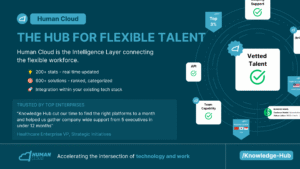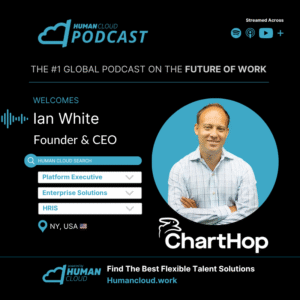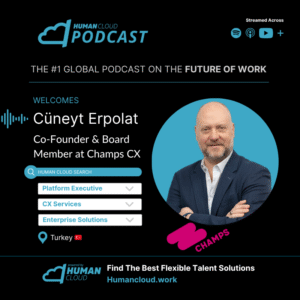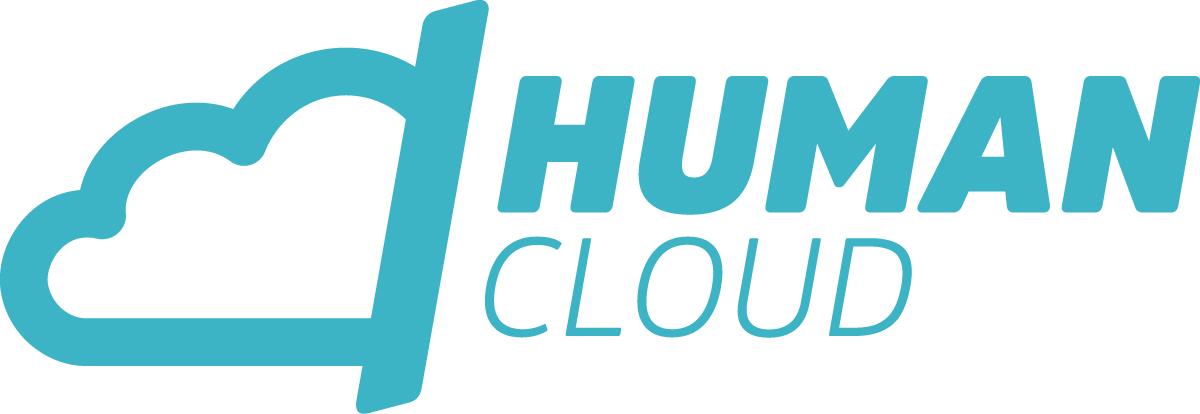Azariah Lehman
CHIEF ADMINISTRATIVE OFFICER, IWORKER INNOVATIONS; REPRESENTATIVE- POLICY AND EXTERNAL AFFAIRS, IPSE-U.S
Welcome to our Leader Portal, where you can learn from tactical experts, not thought leaders. We place our stamp of approval on each leader so you can trust their insights are tactical insights, not sales pitches.
Enjoy!!! 👊
Leaders, our space is quickly running into legal and compliance challenges. From AB-5 in California, to the PRO Act, to the recent Texas ruling, hiring independent contractors is getting more complicated by the day.
Which is where Azariah Lehman comes in, the rare Changemaker that can help us navigate the legal landscape so we can educate and empower our teams and companies to work compliantly with independent contractors.
My favorite part about Azariah is how she can balance tactical with high level. For example, she’ll break down the technical insurance requirements that make freelancer benefits so difficult while summarizing the history of independent contracting from farmers in the 1800’s to now.
Find the full transcript HERE.
Some of our favorite quotes:
Her background:
My background is really in psychology. My degree is in performance psychology, and I have a background in researching the independent workforce and understanding the differences between workers, interdivisional employees and independent workers. I myself have a history of working independently, especially when my children were smaller, I’ve always worked independent in some way. Independently, I worked in a multi systemic therapy system for a while with at risk teenagers, they did that for quite some time. I was also a professor. And now I work with an organization that is striving to bring benefits to the independent workforce and also an association iPSI US that is trying to create a community and a mechanism for individuals that do work independently to get the resources and access to benefits that they need to.
A little independent economy overview
If we look at the history of our nation, we were built, the foundation of our country is built on basically small business entrepreneurs, people who were doing their own thing. I mean, even farmers, they were independent, right? They didn’t have a greater structure that was governing them so this is nothing new. Which is always surprising to me, because we forget those pieces of history like this is not a new thing that we’re doing out here.
My grandfather saw the science of the time, the farming equipment, for example, everything had become so expensive, and it was so capitalized that farmers were almost being forced to take subsidization. But he said no, he said, we’re not like I don’t want to owe you, I don’t want to owe somebody that amount of money. And so he saw a better opportunity, and my uncle stayed on the farm.
Defining the independent economy
When I go out, and I’m speaking to people about the independent workforce, their first response is generally like the gig economy or the platform economy. And I just want to make sure everyone understands, like, that’s such a small percentage of independent workers. And I think that’s a really valuable segment. But platform workers are not the largest segment. And we have a lot of really successful independent workers that make six figures. And we have, you know, technologists, we have all kinds of people who work independently that aren’t platform workers. So I think it’s important to mention that because I don’t want everybody’s mind to go straight to, you know, Spark or Lyft apps.
What’s fueling the rise of the independent economy?
And so I think, with risk of being controversial, unions are great, and they work great, especially me being in Michigan, I can tell you, I grew up around this. And it does a lot for a lot of people. And it builds a really good life for a lot of people. But what it also does is it creates a wage that is so high, that there’s so many unintended consequences, that it begins to break down other areas. And so it can’t sustain itself that long. That’s my opinion on how we got to where we are now and why people are really moving back toward independent work.
I think I’m part of the generation that was very disheartened. And I was like, listen, why would we? Why would I give you my life and my time for you to turn around and smack me in the face? And so I think that kind of also catapulted a little bit of that movement of how do we how do we do something different again?
What’s in the way of freelancer benefits?
But what happened is when we had the movement toward unionization the norm became that benefits in our country were tied to unions or a primary employer, right. And so you had to get your health insurance, those benefits and everything, they primarily came through your employer if you worked full time.
And that becomes a problem. If they don’t have a group with a demographic data and an understanding of who these people are, then they do have a difficult time rating policies, which can be expensive or confusing.
I’ve had these conversations with insurance companies and carriers, and I’m like, Listen, you should want our people because historically, and statistically independent workers are happier and healthier than employees.
Current political landscape
I will say under the Trump administration, we did make a lot of strides towards supporting small businesses, independent workers, freelancers of the gig economy in general. And then one of the first moves that the Biden administration did when they came in, was to pretty much negate almost everything that had been done in that area. I’m not surprised by this. Over 70% of funding for Democratic Party campaigns comes from unions. And so the movement back toward funding unions and getting union membership backup, I actually listened to a podcast of yours.
Compliance landscape
What they did (Biden administration) is they reverted immediately back to the prior ways and policies of handling independent workers, which was much more limited. And it was very specific to how they worked when they worked. And a couple other factors, like the style of work that they did for the company, there were so many little fine tune things that almost made it impossible for a company to use a contractor and not be at risk of them saying that they’re an employee, right?
Pro’s/Con’s
Some of the benefits of independent work was the freedom that people want, you know, doing something that they love. They are devising their own schedule.
Some of the the negatives in the number one thing that we still hear from independent workers is, what are their, what’s their biggest concern or need, and that’s still on the forefront of their mind almost at all times, is making sure they’re securing the next contract or the next job or whatever that might be. How are they getting the next, you know, gig, if you will. And so that’s always on the forefront of their mind. This pervasive looming thing that’s resting in your mind, okay, you’re always going to move forward, you is going to secure this and you always gotta so to your point, it can feel insecure, because you’re always having to create your own security.
Other challenges, I think, are always of course benefits. It’s not that there’s not a marketplace of benefits available to people, it’s that the accessibility to those benefits is a little bit difficult. And the cost is often much higher for independent workers than it is for employees.
Opportunities
Making it portable is something that’s being looked at right now. There’s a bill that’s being proposed to create grant, to grant money to companies or organizations that are finding new and innovative ways to make benefits portable for the workforce in general, not just specifically for independent workers.
Client-Freelancer Mutual Agreement:
clients: statement about how you will ethically work with independent contractors
freelancers: self attestation movement where we rise up ourselves and say, Hey, I’m an independent worker, I’m capable of managing myself

Human Cloud Newsletter

Subscribe
Human Cloud is the intelligence layer connecting companies to their future workforce. Subscribe to receive daily, weekly, and monthly insights.

Ian White, Founder & CEO at Charthop
TRANSCRIPT Ian White, Founder & CEO at Charthop LinkedIn Email Twitter Print Subscribe to Human

Cüneyt Erpolat, Co-Founder & Board Member at Champs
TRANSCRIPT Cüneyt Erpolat, Co-Founder & Board Member at Champs CX LinkedIn Email Twitter Print Subscribe
